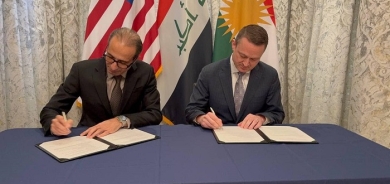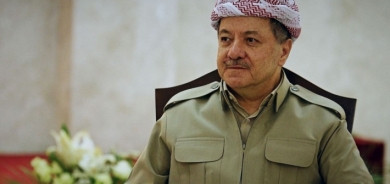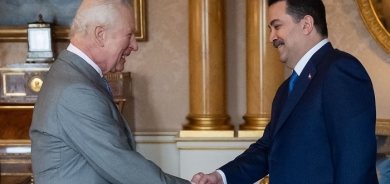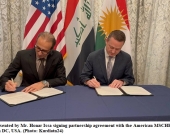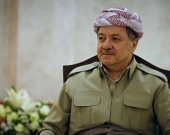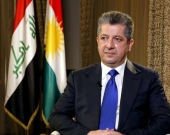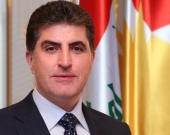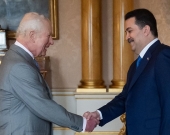From Mountain People to Partner?

Against the backdrop of the current round of bloodletting that is wracking the region, the Kurdish success story continues to establish itself. In Turkey before the headlines became dominated by the street protests one of the biggest story's of the year was the deal made in the decades old conflict between Ankara and the PKK.
The negotiated agreement that saw hundreds of PKK fighters moving into the borderland of Iraqi Kurdistan followed a sustained improvement in relations between Turkey and the Kurdish Regional Government (KRG) of Iraqi Kurdistan. The landlocked KRG have steadily looked to connect their two greatest assets, energy supplies and stability, through to Turkey.
Albright would never have predicted that Turkey, previously so opposed to Kurdish autonomy, would develop such close economic relations with the nearest thing to a state-like entity that the World's largest stateless people have ever had. As Iraq endures its most violent period in five years, with over 1,000 people killed in May according to the UN, those media that visit the north of the country run out of superlatives to describe the contrast. The standard headlines involves variant around the word 'boom' or 'booming'.
This month the Guardian's Ian Black made the pilgrimage to Iraqi Kurdistan to witness the final steps towards the completion of an oil pipeline that will snake into Turkey carrying with it 300,000 barrels of crude oil a day. Back in the UK industrialists, entrepreneurs, analysts and journalists alike receive a regular stream of invitations from the Middle East Association, the KRG's office in London or the well connected All-Party Parliamentary Group (APPG) on Kurdistan to tourism conferences (In 2012, over 2.2 million tourists visited Kurdistan), business talks or trade delegations to the region. The invitations often tease with introductions outlining how with 45 billion barrels of oil reserves and 3-6 trillion cubic meters of gas reserves, the Kurdistan Region of Iraq is "one of the last remaining conventional oil and gas frontiers on earth".
Iraqi Kurdistan's geography, landlocked with conflict-ravaged Syria to the West and quasi-Pariah Iran to the East, may have been a blessing in pushing the KRG towards finding a modus vivendi with Turkey but it limits their long term supply of international investors. I travelled to the region in March and saw their newfound wealth translated into five star hotels, conference centres and infrastructure. It can come as no surprise to see the KRG look to Europe for high-tech investment. Against this frenzy of opportunity and activity you'd think that a government in Westminster that has put commercial diplomacy at the heart of its foreign policy would be at the vanguard of international relations with the nascent Kurdish entity. There are flickers of the potential for a far stronger relationship in the making; this February the UK Parliament recognised Saddam Hussein's murderous ANFAL campaigns as genocide against the Kurds.
This important political recognition is backed by steadily increasing economic links - in July the KRG is holding a one-day tourism infrastructure development, investment and business match-making conference in London, with the support of UK Trade and Investment. However an Iraq-phobia felt by British politicians has combined with an innate wariness as to the region's long term stability by economic investors.
The Director of the APPG, Gary Kent, who has visited the Kurdistan Region 12 times since 2006 with fact-finding delegations, told me: "People were initially confused as to where Kurdistan was, literally. When Iraq was mentioned, they became wary. The APPG and others have made the case that increasing cultural and commercial connections with the Kurdistan Region are of mutual benefit to the UK and the Kurdistan Region. The message has got through. Kurdistan is now on the map…..the export of oil and gas to Turkey will also benefit the UK and Europe. Turkey can become an important energy hub, fuel its growing economy and become a critical cog in the secure and reliable energy resources to Europe".
Indeed the pipeline is both a moment of high opportunity and risk. Relations between Erbil and Baghdad have been poor for some time and in the absence of a constitutional agreement around the hydrocarbons law some fear that a cold war between the centres of Iraqi power could turn hot. Black wrote in the Guardian that the Kurds were "improving their bargaining position to try to force a reluctant Baghdad to comply with the federal constitution".
This tension has manifest in fire fights across the internal border between Iraqi Kurdistan and Iraq. In May three suicide bombers attacked Kurdish security forces and the local headquarters of a Kurdish political party in the disputed area around Kirkuk. Only this week AFP reported that more than 1,000 Kurdish career soldiers in the Iraqi army have deserted and want to be integrated into forces loyal to the KRG.
A stronger relationship with a UN Security Council permanent member like the UK could prevent the completion of independent exporting capacity to Turkey becoming an issue of systemic division, as has happened between Sudan and South Sudan. The UK government commitment to the KRG does not have to come with an implicit acceptance of Kurdish independence as paradoxically enough that appears to be that last thing on the KRG's mind. Independence brings a host of unpredictable consequences in a region whose only stability lies in the seeming permanence of the borders lovingly drawn by Britain and France nearly 100-years ago. Far better, it would seem, to embrace the pragmatisms of trade than the explosive redlines of separatism. Iraq descent into violence is of course a worry to Erbil but their security forces and internal borders buffer themselves against the aftershocks of surrounding regional conflicts.
Downing Street should not underestimate the warmth of feeling generated by the House of Commons debate recognising the Kurdish Genocide. A formal government acceptance of this history and real commitment to economic partnership would appear to be a politically and economically sensible step forward. Such a surge in relations could be launched with the hugely symbolic agreement of direct flights, an issue apparently sitting in a technical no-man's land but surely one that a little bit of political leadership can cure. As Gary Kent explained "we need improved visa issuing facilities in Erbil and direct flights".
The Kurds famous phrase that they have 'no friends except the mountains' could be one for the history books as the UK and other European powers discover that amongst the bloodshed of the region there is an emerging gem in the Kurdish north of Iraq.
By James Denselow, Foreign Policy Centre Research Associate.


